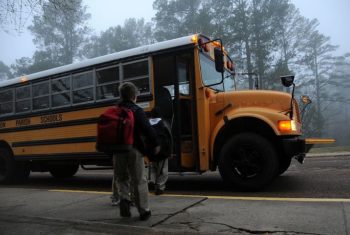How to Reduce Bullying at School
Each day our children are exposed to incidents of teasing, criticizing, and belittling. How children respond to these subtle, but destructive statements, can make a huge difference in their daily  experiences at school. For example, one child may tease another at lunch about what he is eating. It may be that the child has food allergies and cannot eat certain foods. In another situation, a child may be eating foods that are unique to a culture. Regardless of the reason, children must learn to respect the individual differences of their classmates. Most schools focus on teaching children how to get along with others. Many schools grade children on their behavior with their classmates and their teacher. In California, schools have established strict guidelines on how students are to report bullying incidents to their teacher and school personnel.
experiences at school. For example, one child may tease another at lunch about what he is eating. It may be that the child has food allergies and cannot eat certain foods. In another situation, a child may be eating foods that are unique to a culture. Regardless of the reason, children must learn to respect the individual differences of their classmates. Most schools focus on teaching children how to get along with others. Many schools grade children on their behavior with their classmates and their teacher. In California, schools have established strict guidelines on how students are to report bullying incidents to their teacher and school personnel.
Strategies
Parents can guide their children in how to respond to these difficult situations in several ways:
- Teach your children to express their feelings when they are being criticized or when they feel uncomfortable in a situation.
- Help your child articulate how they feel when someone harasses them.
- Encourage your child to also tell the teacher when he is feeling threatened or uncomfortable about a situation.
- Discuss awkward or uncomfortable situations with your child to ensure that you understand what your child is experiencing.
- If your child has reported a bullying event at school to you, meet with the teacher to coordinate a follow-up plan.
- Conferences with the teacher can provide insight to your child’s behavior. For example, a child may bully another child if he has been bullied at school or home. Therefore, the child that is acting as a bully needs to be trained in how to overcome this learned behavior.
Overcome Bullying
Children learn from observing and interacting with the people around them, both children and adults. When a child experiences a bullying behavior, it is important to teach the child how to be a survivor by clearly communicating to the bully, the teacher, and the parents.
Much success in overcoming bullying challenges!
Joyce
Copyright © 2017 by GenParenting

Joyce Iwasaki has over thirty years of educational experience working with diverse students in grades from preschool through high school. Joyce’s extensive background includes teaching elementary school, serving on early childhood advisory boards, and advocating for educational initiatives as a legislative aide. During her tenure as a legislative aide, she helped create legislation that allowed incarcerated mothers to keep their newborn babies with them while in prison. Additional legislation was enacted to allow incarcerated pregnant mothers to remain unshackled during labor and delivery. Ms. Iwasaki established and served as the president of an educational scholarship foundation for fifteen years. Her foundation awarded college scholarships to emerging student leaders who provided service to their schools and communities. Joyce is active in performing arts and cultural organizations. She also provides ongoing support to her daughter and family by raising her grandson in her home.

